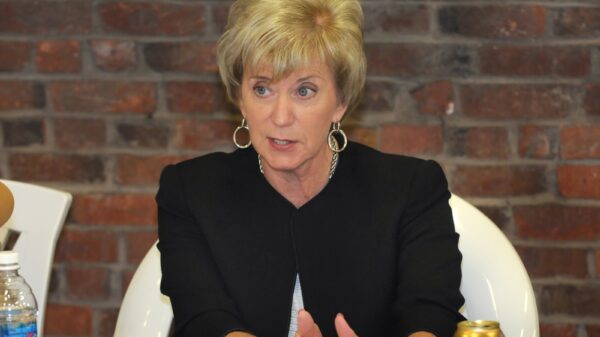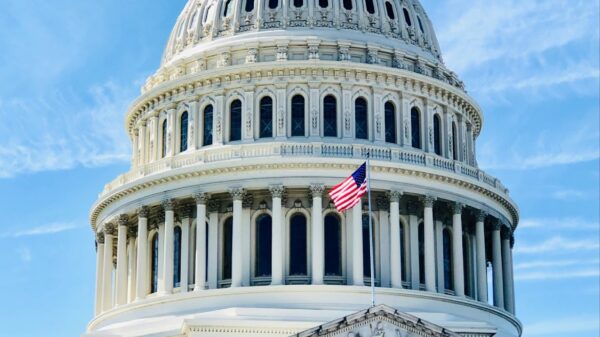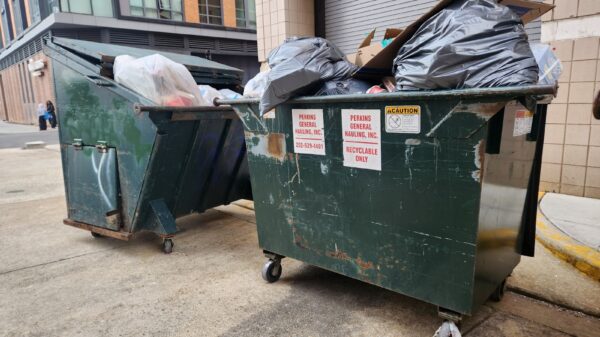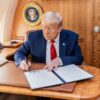Earlier this month, President Donald Trump announced the “Fair and Reciprocal Plan,” which aims to impose tariffs on trading partners that don’t offer the United States equal trade terms.
On Feb. 13, The White House declared the United States will no longer tolerate being “ripped off” and emphasized that it has one of the most open economies in the world. Their trading partners, however, keep their markets closed to U.S. exports. The reciprocal trade approach will finally correct that imbalance, according to the White House.
“I’ve decided for purposes of fairness that I will charge a reciprocal tariff,” Trump said at the proclamation signing. “It’s fair to all. No other country can complain.”
A fact sheet released by the White House claims that more than two-thirds of the time U.S. exporters face higher tariffs across 132 countries and over 600,000 product lines, according to findings in a 2019 report from the White House Office of Trade & Manufacturing Policy.
Brazil
Brazil’s Energy and Mining Minister Alexandre Silveira said that a potential U.S. tariff on Brazilian ethanol would be unreasonable, emphasizing that the two countries have historically negotiated ethanol and sugar trade together.
The U.S. tariff on ethanol is 2.5 percent whereas Brazil charges U.S. ethanol exports a tariff of 18 percent, according to the White House
As a result, in 2024, the fact sheet said the U.S. imported over $200 million in ethanol from Brazil while the U.S. reciprocated only $52 million in ethanol.
“To have a fair and reciprocal plan, as stated by President Trump, it would be necessary, in fact, to eliminate import tariffs for Brazilian sugar,” Silveira said.
The Trump administration has yet to respond.
India
The U.S. applies an average Most Favored Nation (MFN) tariff, the lowest tariff rate that a member of the World Trade Organization (WTO) can impose on another member country, of five percent on agricultural goods, while India imposes a much higher 39 percent average tariff on similar imports, according to the White House.
The fact sheet also shows that India enforces a 100 percent tariff on U.S. motorcycles, compared to the U.S.’s 2.4 percent tariff on Indian motorcycles.
With Citi Research analysts estimating potential losses at about $7 billion a year, Trump’s threat to impose reciprocal tariffs from early April is feeding anxiety in India’s export sectors, according to Reuters.
Due to this fear, Indian stocks have lost about $180 billion in market value in the two days with many analysts saying India, the world’s fifth-largest economy, could be the worst hit, according to Reuters.
India and the U.S. agreed to initiate talks for an early trade deal and resolve tariff disputes, according to Reuters.
The agreements followed discussions between Trump and Prime Minister Narendra Modi at the White House on Feb.13, despite Trump’s earlier criticism of U.S. business conditions in India and his push for reciprocal tariffs.
“The leaders announced plans to negotiate the first tranche of a mutually beneficial, multi-sector Bilateral Trade Agreement (BTA) by fall of 2025. To this end, the leaders set a bold new goal for bilateral trade – “Mission 500” – aiming to more than double total bilateral trade to $500 billion by 2030,” according to the India-US Joint Statement.
European Union
The trade imbalance in shellfish between the United States and the European Union (EU) has raised several concerns from the White House despite the EU’s prior commitments to speed up approvals.
In 2023, the fact sheet showed that the value of shellfish imported by the U.S. from the EU was approximately $274 million while the value of shellfish exported from the U.S. to the EU was only $38 million.
The EU requires that shellfish be harvested from waters meeting specific sanitary standards, and the U.S. has not yet demonstrated compliance for all states.
On Feb. 4, the European Commission announced plans to further restrict imports of certain food products that do not meet EU standards, aiming to protect its farmers. This move mirrors trade policies previously advocated for by the U.S.
Currently, only shellfish from Washington and Massachusetts are approved for export to the EU.
The EU might respond to his reciprocal tariff policy by restricting imports of certain American food products, according to the Financial Times.
“That’s all right. I don’t mind. Let them do it. Let them do it,” Trump said upon hearing about the restrictions. “They’re just hurting themselves if they do that, I can’t imagine it, but it doesn’t matter.”
U.S. Trade Deficit
“This lack of reciprocity is one source of America’s large and persistent annual trade deficit in goods: closed markets abroad reduce U.S. exports and open markets at home result in significant imports, both of which undercut American competitiveness,” according to the White House fact sheet on trade deficits.
The White House claimed that the non-reciprocal taxes cost America’s firms over $2 billion per year.
“This lack of reciprocity is unfair and contributes to our large and persistent annual trade deficit,” according to The White House.
Copy edited by Aniyah Genama
































